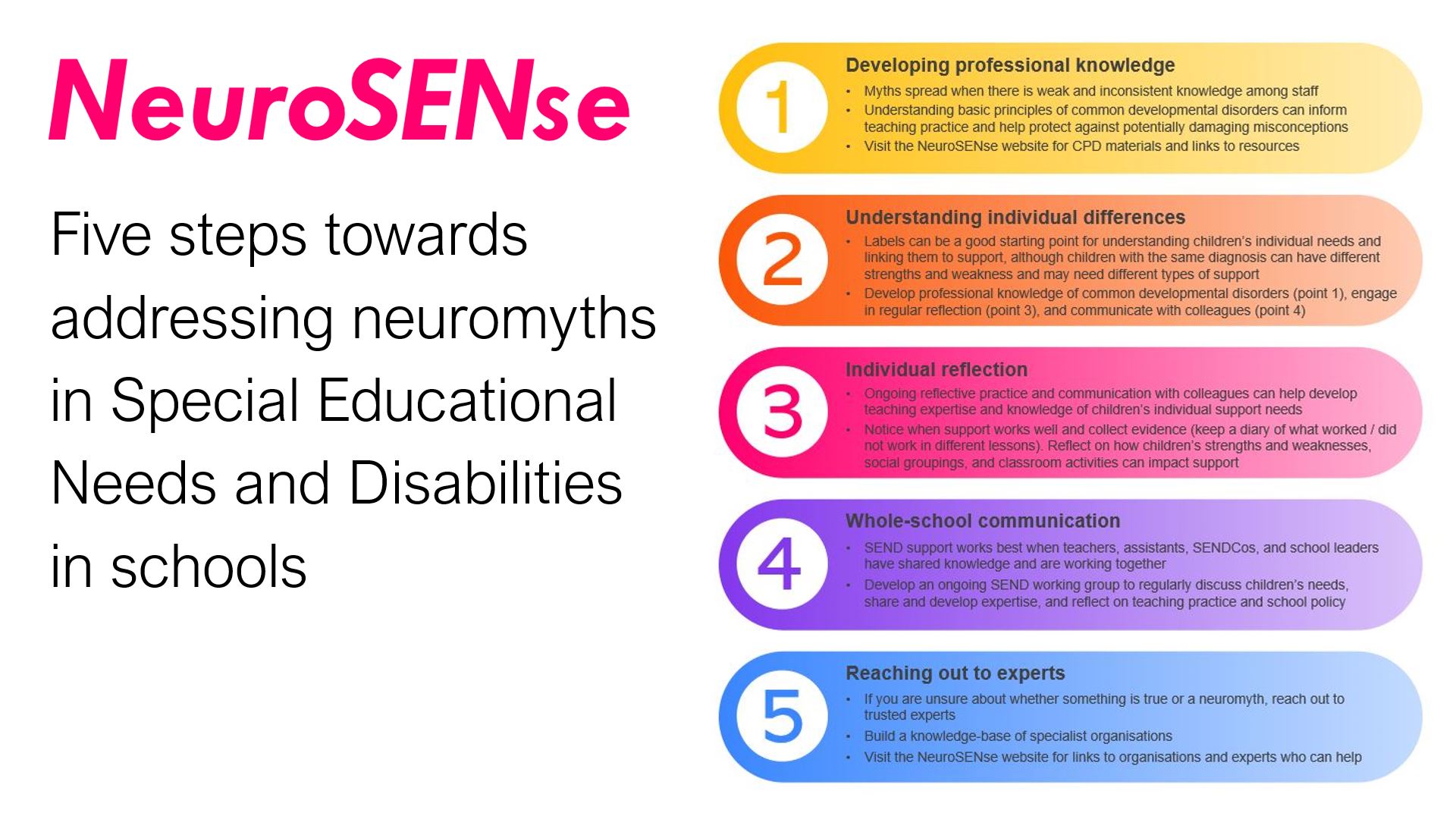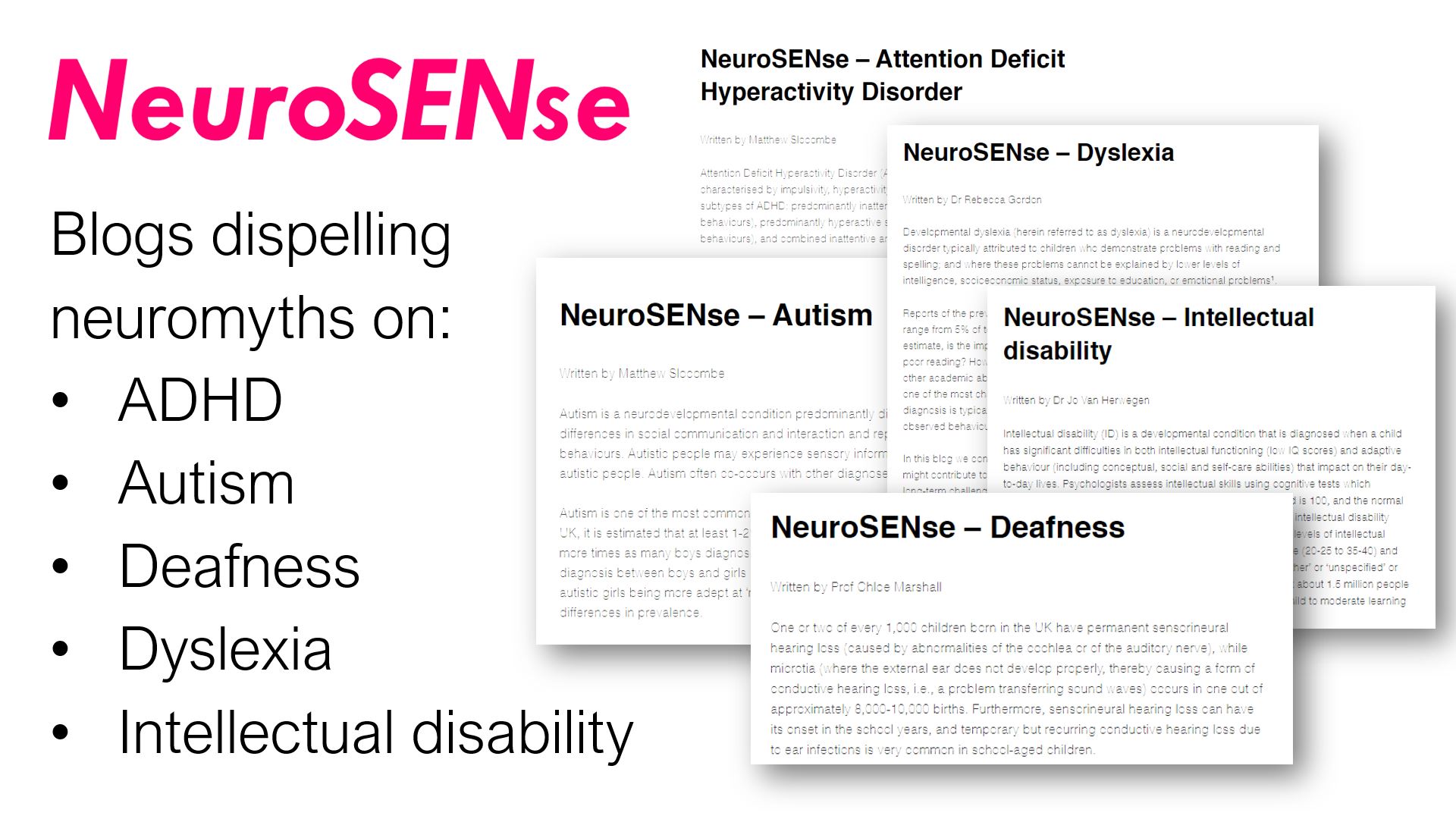
This week, the Centre for Educational Neuroscience launched a range of free ‘NeuroSENse‘ teacher resources to help raise awareness of neuromyths related to neurodevelopmental disorders and special educational needs.
The NeuroSENse resources were launched with an online twilight event attended by teachers, SEND specialists and school leaders. The event started with Dr Jo Van Hewegen discussing a recent study conducted by her lab on the prevalence of neuromyths in education and the general public. Dr Van Herwegen described that whilst the general public and educators rated similar numbers of neuromyths as true, neuromyths related to neurodevelopmental disorders were more commonly believed to be true compared to general neuromyths about learning.
Following Dr Van Herwegen, Matthew Slocombe described several focus groups conducted with teachers, SENDCos, teaching assistants, and school leaders to understand which neuromyths are common in education and what causes them. Based on the findings of these focus groups, Dr Van Herwegen went on to discuss several approaches schools can take to help address neuromyths related to special educational needs and disabilities.
We then moved on to a series of short presentations from Dr Jo Van Herwegen, Matthew Slocombe, Prof Chloe Marshall, and Dr Rebecca Gordon, who described the new NeuroSENse blogs on common neuromyths related to ADHD, autism, deafness, dyslexia, and intellectual disabilities.
Finally, Dr Jamie Gaplin from the National Association for Special Educational Needs and Prof Michael Thomas discussed neuromyths within the broader contexts of SEND support and neuroscience, highlighting the value of dialogue between practitioners and researchers for addressing neuromyths in education.
Visit the NeuroSENse page to access the teacher resources and keep up-to-date with NeuroSENse news and events.


